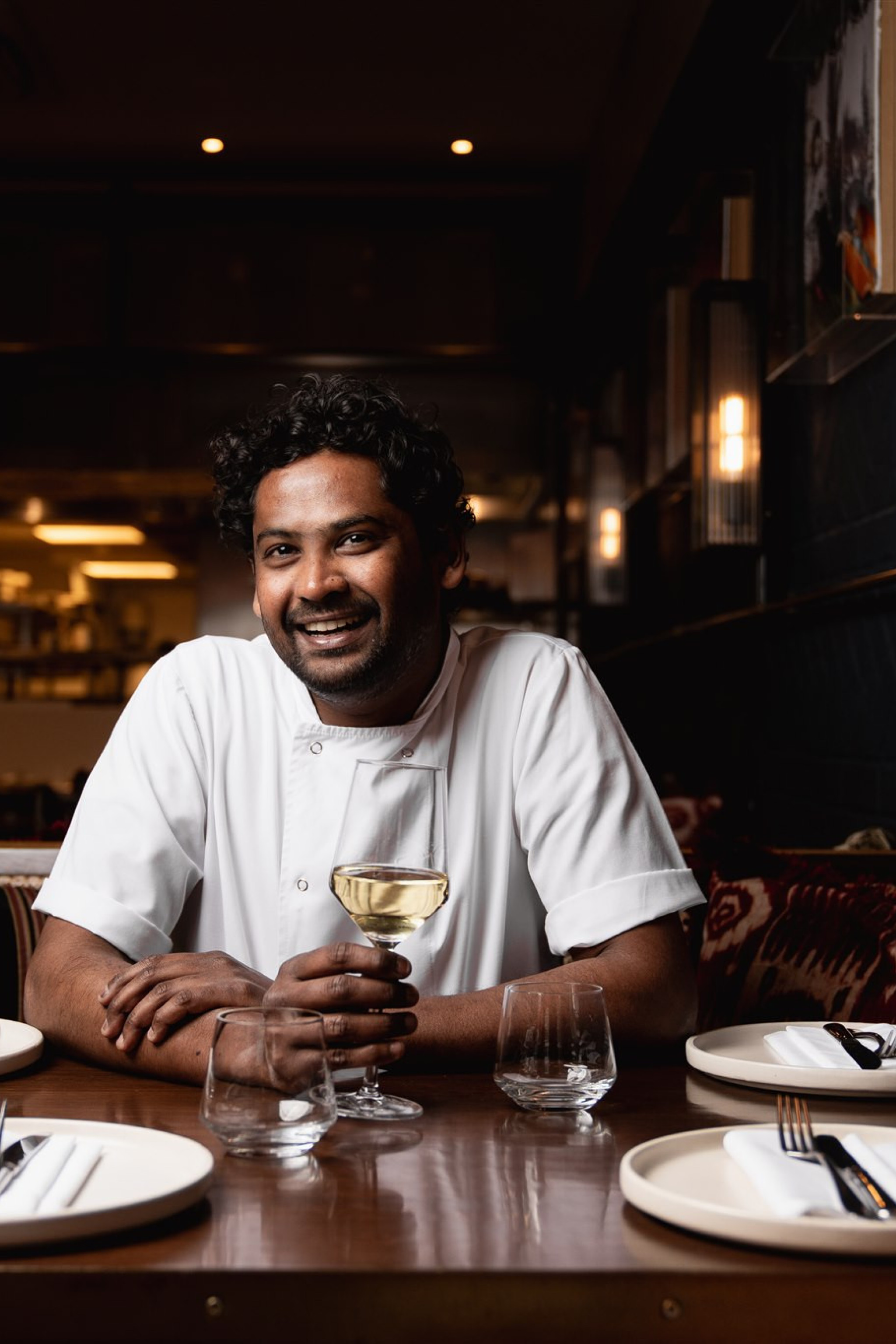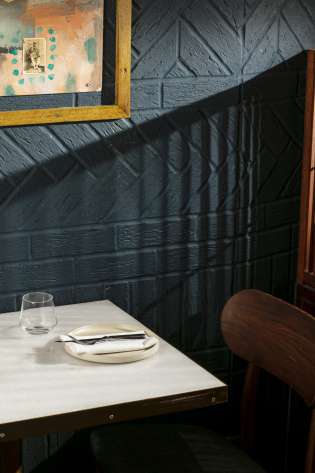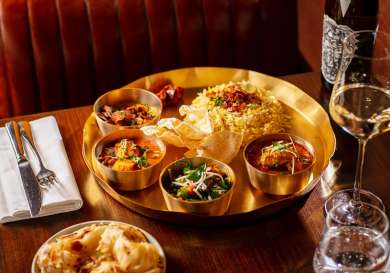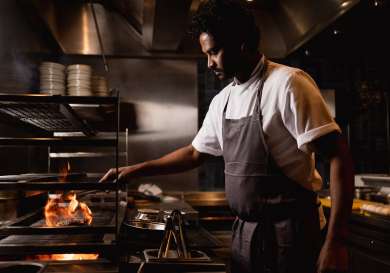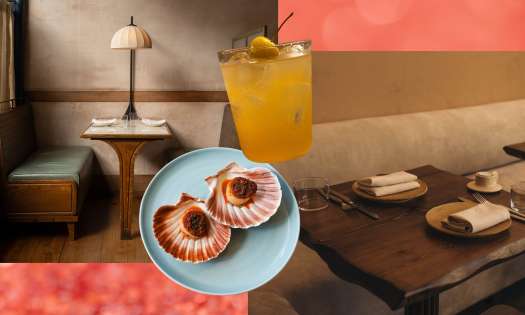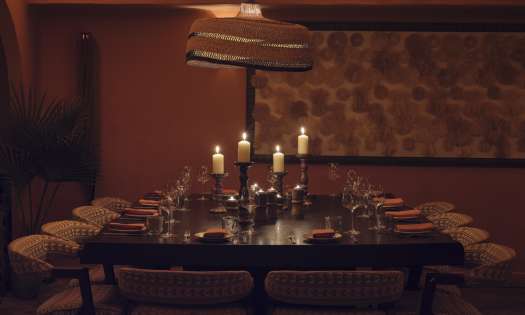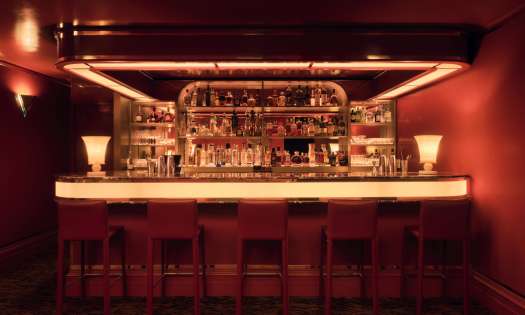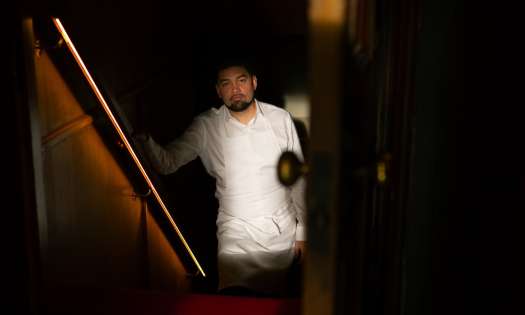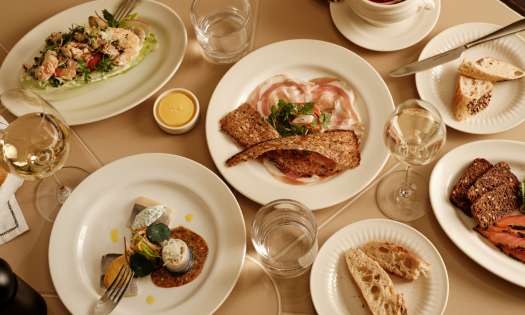Q: Can you share some insights into your culinary journey, from working at The Park to Hibiscus and The River Cafe? How have these institutions shaped you?
A: My journey began at The Park in India, where I learned the basics of Italian cooking. It gave me a solid foundation and discipline that prepared me for my next step at Claude Bosi’s 2 Michelin star Hibiscus. Hibiscus was completely different—it was modern French cuisine at a time where molecular gastronomy was at its peak. In 2005, techniques like using a Pacojet and creating foams and jellies were groundbreaking. It was an intense, two-Michelin-star kitchen that taught me precision and the level of organisation required to operate at such a high level.
That said, it was exhausting, and I was constantly tired, but as a young chef, it was exactly the experience I needed. Then I moved to The River Cafe, which was more relaxed in comparison. Cooking there focused on simplicity and seasonality, and Ruth and Rose were like nurturing mothers, teaching chefs to rely on their senses. This approach made me a better cook and a better person. It also shaped how I opened Pahli Hill, incorporating the importance of high-quality, seasonal ingredients and cooking with intuition.
Q: Who have been some of your key mentors, and what lessons have you learned from them?
A: Ruth Rogers from The River Cafe has been a huge inspiration. Her passion and energy are unmatched, and she never seems to stop pushing herself and others. The head chefs at The River Cafe also taught me discipline and the importance of never compromising on the quality of ingredients. Outside of the industry, I’ve also had friends who’ve been excellent mentors, offering perspective and helping me grow. The common lesson across all these influences has been to keep striving to improve, stay curious, and never lose the passion for cooking.
Q: What was your experience like championing both British and Indian culture on Great British Menu?
A: It was an incredible experience and a source of pride. Indian food has become such a big part of British culture, but it’s often stereotyped. I wanted to break that mold and show the breadth of my skills, which included British and Italian influences from my career. Before Great British Menu, I had never actually worked in an Indian restaurant, so it was great to demonstrate that chefs with Indian heritage can work across cuisines, and I hope this inspires other chefs to do the same.
Q: Seasonality is really important to you. How did your childhood influence this outlook?
A: Seasonality was ingrained in me from childhood. My dad and I would go to the market every evening to buy vegetables for dinner. During festivals, my parents would show me how to pick the best produce from the market, and how to choose seasonal ingredients. This daily connection to fresh, seasonal ingredients stayed with me. My childhood experiences built the foundation, and working at The River Cafe reinforced this.
Q: Did you have any fears or concerns when launching your own restaurant? It opened during COVID, which must have brought challenges!
A: Definitely! Launching Pahli Hill was daunting. It was my first time as head chef and my first time cooking Indian food in a restaurant. On top of that, we opened between lockdowns, which definitely had its challenges. Staff shortages were another issue—many chefs didn’t return after COVID and Brexit, which made hiring extremely difficult.
Q: The venue is named after an area in Mumbai. What about this location inspired you to name your restaurant after it?
A: Pahli Hill is a historic and affluent neighborhood in Mumbai, home to families from all over India. It’s a melting pot of cultures, which reflects what we do at the restaurant. At Pahli Hill, everything is made in-house, just like in an Indian home—from ghee to pickles—so the name felt like a natural choice to mirror that.
Q: Pahli Hill is centered around family recipes, which is a lovely way to showcase tradition and culture. What does this mean to you, and how does it manifest in dishes?
A: Every time I go home or speak to friends and family at home, I try and gather inspiration to create new dishes at the restaurant, recipes that have often been forgotten or lost. We also ask our chefs to draw inspiration from their own childhoods, recreating dishes that resonate with them.
Q: What’s one dish you recommend guests try from Pahli Hill?
A: The Mangalore Bun and Scottish Crab Sukkha is a must-try. It perfectly encapsulates our style of cooking. The crab is spiced using a traditional Mangalorean recipe, paired with buns made from banana puree and yogurt. The crab itself is sourced from Scotland, one of the best places for shellfish, and unlike what is traditional in India, we take the crab out of its shell to make it easier for our guests to eat. So, it combines the best of both worlds: authentic Indian flavours and exceptional British ingredients.
Q: Team dynamics are crucial in a kitchen. How do you foster a collaborative and supportive environment among your staff?
A: At Pahli Hill, we’re focused on providing a good work-life balance. We close on Sundays and try to give everyone their preferred day off. We don’t do split shifts, and we foster a culture of mutual respect. Senior chefs are encouraged to mentor junior ones in a nurturing way, like older siblings. If there’s an issue amongst staff at all, we sit down and resolve it amicably. We also try and keep things simple in the kitchen so that no one becomes so stressed that they want to leave, we really want to have good staff retention and to look after our employees.
Q: Can you share some advice for aspiring chefs on navigating and succeeding in the culinary world?
A: My biggest advice is to put your head down and focus on learning. Absorb as much as you can, ask questions, and try and eat in nice restaurants to gain outside inspiration. Use cooking at home to further your knowledge and to increase your passion - this is a chance for you to cook without the pressure of being in the kitchen! And make sure to always use good quality ingredients when you do. The industry is highly competitive, so stay open-minded about learning new cuisines and techniques. Gone are the days when bullying was acceptable in kitchens—it’s important to work in supportive environments, but don’t shy away from hard work. Every skill you learn will come in handy one day.
Pahli Hill Bandra Bhai
Address: 79-81 Mortimer St, London W1W 7SJ
Bookings: https://www.pahlihillbandrabhai.com/
Read More About Those Who Inspire and Innovate
The Quiet Revolution of Beauty of Poverty
Read More Chef Interviews
Meet The Chef: Kenny Atkinson of Solaya
More Stories You’ll Love
Mario Mozzetti and Filippo La Gattuta
In Conversation: Adam von Gootkin On His New Private Members’ Club
